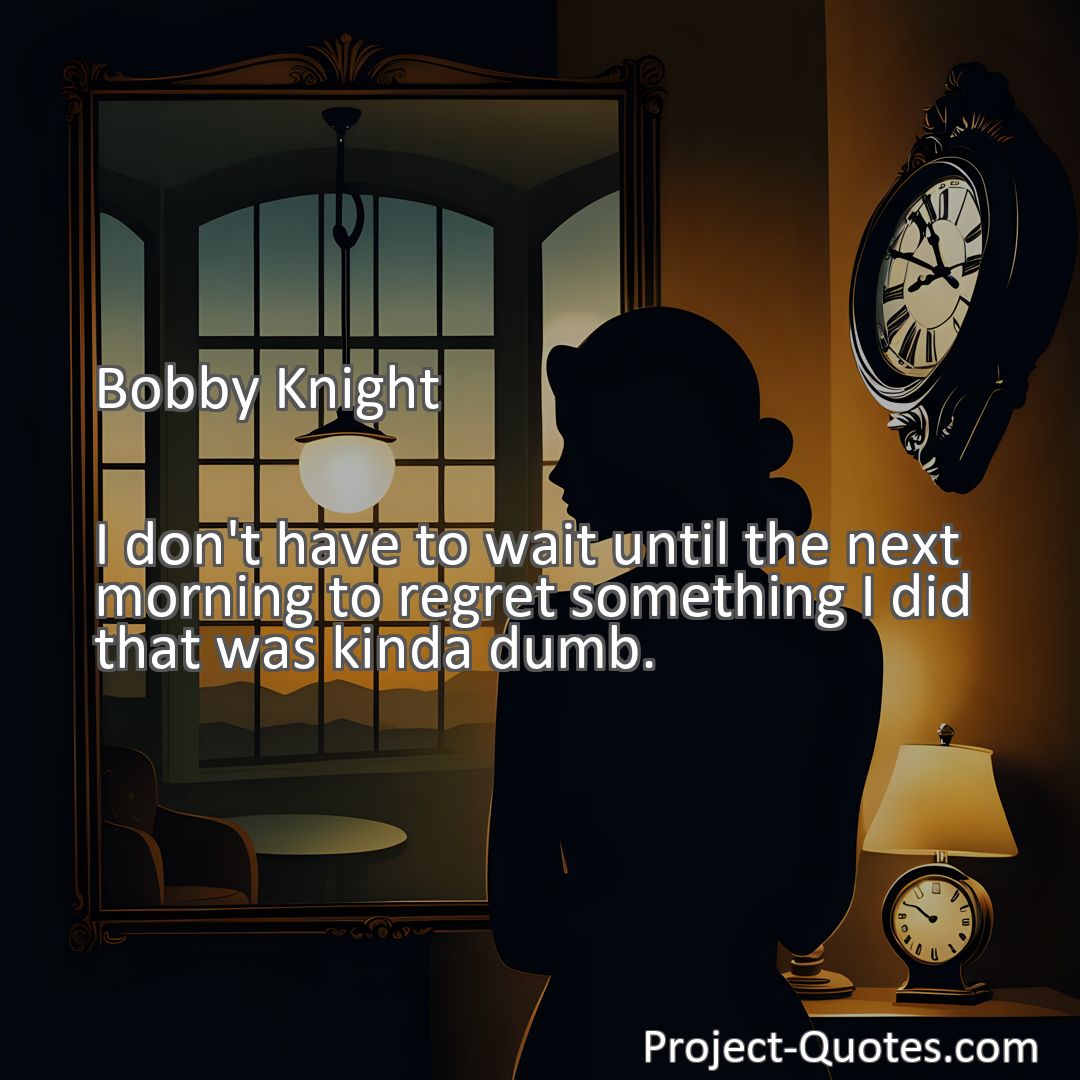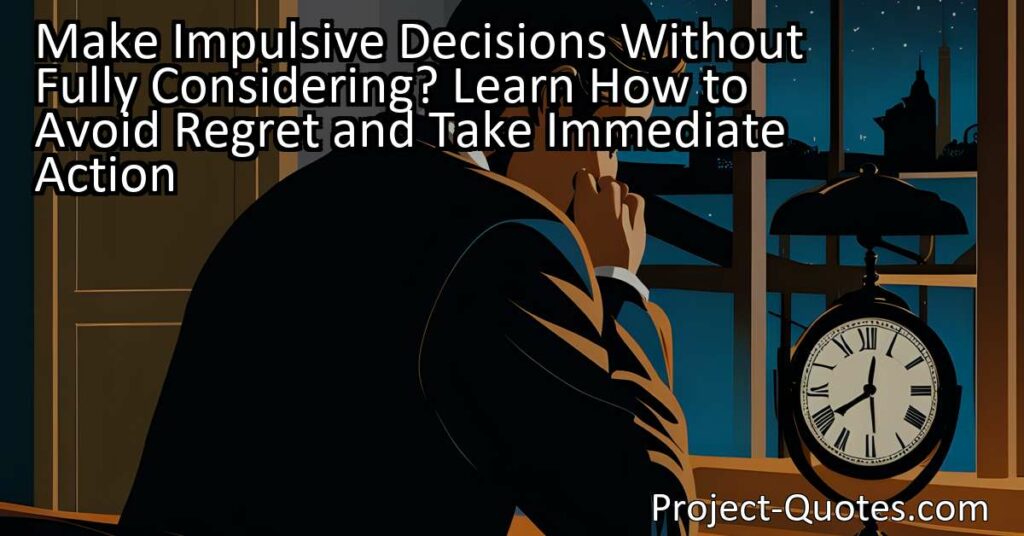I don’t have to wait until the next morning to regret something I did that was kinda dumb.
Bobby Knight
Learn How to Avoid Regret and Take Immediate Action When Making Impulsive Decisions Knight’s quote reminds us of the importance of reflecting on our actions and taking responsibility for our mistakes in the present, rather than pushing them to the back of our minds until they resurface later. By practicing self-awareness, holding ourselves accountable, learning from our mistakes, and embracing mindfulness, we can foster personal growth and avoid unnecessary regret. Remember, we all make mistakes, but it’s how we handle them that truly matters.
Table of Contents
Meaning of Quote – I don’t have to wait until the next morning to regret something I did that was kinda dumb.
In the wise words of Bobby Knight, “I don’t have to wait until the next morning to regret something I did that was kinda dumb.” We have all found ourselves in situations where we did something silly or made a mistake that we immediately regretted. But what Knight highlights here is that we don’t need to wait until the consequences catch up to us to feel remorse. This quote reminds us of the importance of reflecting on our actions and taking responsibility for our mistakes in the present, rather than pushing them to the back of our minds until they resurface later.
Regret is a natural part of life. We are bound to make errors, wrong choices, and poor decisions as we navigate through the complexities of life. However, it is how we handle those mistakes that define our growth and character. Knight’s quote inspires us to take an active role in recognizing our missteps in the moment and addressing them before any further damage occurs.
One way to tackle this is by practicing self-awareness. Being self-aware means having a conscious understanding of our thoughts, emotions, and actions. It involves being able to recognize our strengths and weaknesses, as well as the impact of our behavior on ourselves and others. When we make a mistake, being self-aware allows us to acknowledge it immediately and take steps to make amends or prevent any further negative consequences.
Another aspect highlighted in Knight’s quote is the concept of personal accountability. It is essential to hold ourselves accountable for our actions, whether they’re significant or seemingly insignificant. As Knight implies, we don’t need to wait for external events or people to highlight our wrongdoings; we can take the initiative to recognize them in real-time. Taking responsibility for our actions demonstrates maturity and integrity, and it helps us grow into better individuals.
Additionally, the quote emphasizes the importance of learning from our mistakes. It’s not enough to simply regret our actions; we must also take the opportunity to reflect on what went wrong and consider how we can improve in the future. By examining our choices, we can identify patterns, behaviors, or triggers that contribute to our errors. This reflection allows us to grow and develop strategies to avoid repeating such mistakes.
Regret can be a powerful motivator. The discomfort we feel when reflecting on our past errors can inspire us to strive for better outcomes. Recognizing our mistakes early on enables us to make immediate changes and take corrective action. By addressing our slip-ups head-on, we minimize the negative consequences and give ourselves a chance to redirect our path.
Knight’s quote might resonate with many adolescents as they navigate the challenges of middle school and adolescence. This period is a time of experimentation, self-discovery, and growth. It is not uncommon for seventh-grade students to make impulsive decisions without fully considering the potential consequences. However, it is essential to teach young individuals the lesson that they do not need to wait until the morning to regret their actions; they can regret, reflect, and take corrective measures in the present.
Furthermore, the quote serves as a reminder that regrets are not limited to the grand mistakes we might make. Sometimes, it’s the small, seemingly inconsequential actions that can accumulate and have a lasting impact on our lives. Whether it’s a thoughtless word spoken in anger or neglecting to complete a simple task, every action has consequences, and regrets can arise from even these minor missteps.
Encouraging individuals to address regrets in the present aligns with principles of mindfulness and self-improvement. Mindfulness teaches us to be present in the moment, cultivating awareness of our thoughts, emotions, and actions. By practicing mindfulness, we can catch ourselves in the act of making a poor decision or behaving inappropriately, allowing us to course-correct before it’s too late.
In conclusion, Bobby Knight’s quote serves as a reminder of the importance of recognizing our errors and taking immediate action to address them. Waiting until the next morning to regret something that was “kinda dumb” is unnecessary and can lead to further consequences. By practicing self-awareness, holding ourselves accountable, learning from our mistakes, and embracing mindfulness, we can foster personal growth and avoid unnecessary regret. Remember, we all make mistakes, but it’s how we handle them that truly matters.
I hope this quote inspired image brings you hope and peace. Share it with someone who needs it today!


